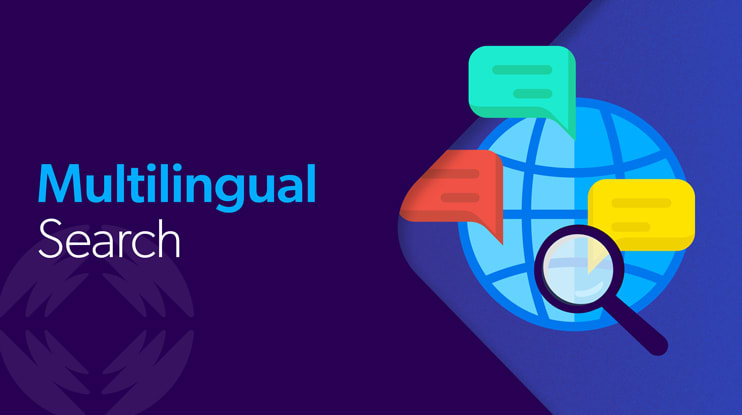Today’s enterprise organizations face a complex set of challenges, from managing the blend between physical and digital (phygital) experiences to navigating massive catalogs and serving diverse markets. It’s no small feat.
Search and product discovery solutions are key to tackling these challenges, but here’s the catch: while many platforms claim to deliver AI-driven relevance and value, not all are up to the task. Enterprise-grade solutions must be built to scale, adapt, and handle complexity. Solutions designed for SMBs or mid-market businesses often fall short of meeting these requirements.
The devil is truly in the details. To help you spot the true enterprise-grade search and product discovery solutions for ecommerce, we’ve outlined 7 must-ask questions and the common pitfalls of platforms that can’t scale. Let’s dive in.
1. Can the Ecommerce Search Platform Handle Complex and Large Catalogs?
Large, deep catalogs present significant challenges and require advanced search and product discovery capabilities. For example, managing millions of SKUs in a single catalog often leads to performance and load issues during indexing, particularly for solutions that rely on third-party indexes not specifically designed for ecommerce product search. Additionally, when dealing with catalogs that contain thousands of attributes, a solution that cannot reorder facets and facet values makes it nearly impossible for customers to effectively narrow down results.
Coveo seamlessly handles these complexities with AI and its proprietary index, optimized specifically for ecommerce. It has been proven in large-scale deployments managing millions of SKUs and thousands of attributes.
Real-world examples like leading B2B distributor, Blackwoods, and omnichannel bookseller, Thalia, highlight how Coveo delivers AI-powered search capabilities proven in demanding, large-scale environments.
More Questions to Ask:
- What is the maximum size of the product catalog the vendor’s search engine has supported so far?
- Can the vendor provide reference customers who manage product catalogs with over 1 million SKUs?
- Does the solution leverage a proprietary index, or is it based on a third-party index like Lucene?
- Is the approach to faceted search and navigation manual and based on facet merchandising, or does it use AI for reordering?
2. Can it Handle Real-Time, Accurate Inventory Information?
Omnichannel is a well-understood concept today, but its execution in ecommerce is far from trivial, posing significant challenges for enterprises. Today’s customers expect to browse products online, check availability, and purchase either online or in-store without encountering outdated stock information. This makes real-time inventory updates a make-or-break feature for enterprise ecommerce.
Imagine the frustration of an online shopper who spends hours finding the perfect dress, only to discover at the product detail page – or worse, at checkout – that the item is out of stock. This challenge is particularly painful in sectors such as fashion, luxury, jewelry, and specialty marketplaces, where inventory is often limited, products may be unique, and customers invest significant time in making purchase decisions.
Unfortunately, many search and product discovery solutions fail to offer real-time inventory updates, leading to mismatched expectations and lost trust. Accurate, up-to-date inventory data ensures a consistent and relevant customer experience across all touchpoints.
Enterprise-grade solutions, such as Coveo, seamlessly handle real-time, accurate inventory information. On the other hand, in scenarios where true near real-time updates are required, solutions based on Lucene and Solr may fall short.
Custom solutions tailored to specific ecommerce use cases, backed by a proprietary index, become essential, allowing to efficiently calculate a delta refresh to update one or more fields within an existing catalog.
More Questions to Ask:
- Can your search catalog be rapidly refreshed before results are displayed to customers? Please specify how quickly.
3. Can it Deliver Personalized Product Discovery at Scale?
Modern customers expect highly personalized experiences that feel tailored to their unique preferences, behaviors, and history. Unfortunately, many solutions that claim to offer personalization often fall short by only considering limited portions of the catalog.

For example, some platforms may be constrained by product limits (e.g., 5,000 products), resulting in performance concerns when attempting broader personalization. Others may only activate personalization for search but not for navigation by default, requiring extensive consultation to extend its scope, ultimately leading to fragmented, disconnected user experiences.
Truly enterprise-grade, advanced AI-driven platforms like Coveo, excel at delivering 1:1 personalized recommendations at scale. They ensure that every interaction—from search to navigation and recommendations—is relevant and impactful, making customers feel understood and valued.
More Questions to Ask:
- Can your solution personalize experiences across search, listings, and recommendations?
- What are the product limit constraints, if any?
4. Can it Surface Both Products and Content?
Enterprise customers don’t just search for products – they often need access to content like technical documentation, support articles, or lifestyle content. An effective search solution integrates both content and product discovery to create cohesive customer journeys and enhance overall relevance.
Not all platforms are equipped to handle complex content requirements. For instance, some solutions geared toward small and medium enterprises may have limitations when dealing with larger or more sophisticated content needs. For example, direct ingestion of PDFs can be a challenge for certain platforms, leading to fragmented user experiences.
Additionally, record size constraints can pose significant challenges. Some platforms designed for less complex commerce applications may struggle with indexing larger content due to limitations, such as a stringent 100 KB limit per record. This can make it difficult to surface detailed, relevant information across large catalogs and content sets, ultimately impacting user satisfaction and discovery capabilities.

Coveo goes beyond product discovery by integrating diverse content seamlessly into the search experience. It eliminates record size limitations and enables direct ingestion of files like PDFs, ensuring comprehensive discovery across products and supporting content. Whether customers need a user manual, a how-to guide, or detailed product specs, Coveo ensures that the right mix of information is always at their fingertips.
More Questions to Ask:
- Can the ecommerce search platform index and surface a variety of content types, including PDFs and other documents, without requiring extensive workarounds?
- What are the record size limits?
5. Does it Support Multiple Markets?
Global enterprises operate across multiple regions and require search and product discovery solutions capable of delivering relevant, localized experiences for each market. Solutions that cannot adapt to regional nuances and provide tailored recommendations and results are ineffective at meeting the needs of a diverse customer base, leading to fragmented experiences and lost opportunities.
To support multiple markets effectively, a solution must leverage robust and scalable cloud infrastructure, ensuring uninterrupted service, fast performance, and global reach. For example, during the peak holiday period in 2024, Coveo handled billions of requests over six days with zero service disruptions – a testament to its enterprise-grade scalability.
But cloud performance alone isn’t enough. Managing multiple sites and regions introduces additional complexities, particularly regarding access control for different markets. Advanced systems like the Coveo Merchandising Hub simplify this process by offering targeted access management capabilities. Additionally, Coveo ensures that customer success and support are not outsourced but instead operate within relevant regions to provide seamless, localized experiences.
More Questions to Ask:
- Does the ecommerce search solution provide scalable cloud infrastructure to handle global reach and peak demand without service disruptions?
- Is customer success and support outsourced? Where is it located?
6. Does it Support Multiple Languages?
For enterprises serving customers across multiple languages, a search and product discovery solution must seamlessly adapt without compromising relevance. Large brands simply cannot afford solutions that only work effectively in English. To succeed globally, organizations need powerful tools capable of delivering impactful product discovery experiences across diverse languages and regions. Robust solutions like Coveo rise to meet these multilingual demands, providing consistent and localized experiences for all users.

Multilingual search introduces unique challenges. Issues can arise not only between different languages but also within the same language due to regional differences in terminology. For example, U.K. shoppers may search for “trousers,” while U.S. shoppers use the term “pants.” Similarly, “trainers” in the U.K. and “sneakers” in the U.S. illustrate how regional variations can impact search outcomes.
Stemming is relatively straightforward in English, which has simpler morphology compared to languages with complex inflectional systems, such as Polish or other Slavic languages. These languages require sophisticated rules to account for their highly inflected grammar, where word forms change based on elaborate grammatical rules. Effective multilingual search must adapt to these complexities.
Additionally, decompounding is an essential NLP task for languages such as German or Finnish, where long, descriptive compound words are common. Breaking down these compounds into their components ensures accurate product matching and a seamless customer experience.
More Questions to Ask:
- Does the ecommerce search solution support multilingual search capabilities with consistent relevance across diverse languages?
- How does the platform handle regional language variations and complexities such as stemming and decompounding?
7. Does it Support the Entire Customer Journey, Including Post-Purchase?
A great customer experience extends far beyond the initial purchase. While many solutions excel during the pre-purchase stages, they often fall short when it comes to post-purchase support. Enterprises need solutions that guide customers from product discovery and purchase through ongoing service and support, creating a holistic and connected experience.

Coveo leverages AI to enhance every stage of the customer journey. It enables customers to find the right products through personalized shopping experiences, facilitates effective self-service support, and equips agents with valuable insights for faster, more connected resolutions. By ensuring relevance throughout the entire journey, solutions like Coveo create lasting value and build loyalty through tailored recommendations, contextual search results, and seamless support experiences that extend beyond the initial purchase.
More Questions to Ask
- Does the ecommerce search platform support the entire customer journey, from product discovery and purchase to post-purchase service and support?
- How does it ensure relevance and provide personalized experiences across these stages?


